Sports Medicine: The Key to Enhanced Athletic Performance
Sports medicine plays a crucial role in optimizing athletic performance by focusing on injury prevention, recovery, and overall well-being. Understanding the principles of sports medicine can empower athletes to achieve their best while minimizing the risk of injuries. In this blog, we will explore the various facets of sports medicine and its significant impacts on enhancing athletic performance.
Understanding the importance of Sports Medicine and Physical Therapy
Sports medicine encompasses a wide range of practices and disciplines that aim to support athletes in their training and recovery. From physical therapy to nutrition, sports medicine addresses the unique needs of athletes and helps them maximize their performance.
At its core, sports medicine is about enhancing the athlete's experience and capabilities. Regardless of the sport or discipline, practitioners strive to individualize training regimens that optimize physicality while preventing injury. Furthermore, it promotes collaboration among various professionals in the field—creating a holistic approach to an athlete's health.
Intriguingly, sports medicine is not solely focused on elite athletes. Recreational athletes also stand to gain tremendously from its principles. By understanding the various areas of sports medicine, athletes at all levels can refine their approach to training and recovery, ensuring longevity in their sports careers.
Injury Prevention: A Foundation for Success
One of the primary goals of sports medicine and physical therapy is to prevent injuries. This includes training athletes on proper techniques, developing strength and flexibility, and educating them about the risks associated with different sports.
Injury prevention goes beyond mere awareness; it encompasses a detailed understanding of an athlete's body mechanics. For instance, sports medicine professionals analyze an athlete's movements to identify potential weaknesses or risk factors that could lead to injuries. By doing this, they can develop tailored prevention programs that address individual athlete needs.
Moreover, educating athletes on the importance of rest and recovery contributes greatly to injury prevention. Many athletes fall into the trap of overtraining, believing that more practice leads to better performance. However, understanding when to rest is crucial for maintaining peak physical condition and preventing long-term injuries.
The Role of Rehabilitation in Performance Enhancement
When injuries do occur, Physical Therapists and sports medicine practitioners play a critical role in rehabilitation. Effective recovery strategies are essential for athletes to return to their sport safely and continue to perform at their best.
Rehabilitation is a multifaceted process that involves physical therapists, athletic trainers, and often psychological support to reintegrate the athlete into their sport. Each stage of rehabilitation is designed to gradually restore full functionality, enabling athletes to rebuild not just physical strength but also confidence.
One particularly effective method within rehabilitation is the use of progressive loading techniques. By gradually increasing the intensity and complexity of exercises, professionals help athletes safely transition back to competitive levels. This method decreases the likelihood of recurrent injuries and ensures a smoother reintegration into their regular training.
Nutrition: Fueling Performance and Recovery
Nutrition is a vital component of sports medicine. Proper dietary choices provide athletes with the energy they need to excel and the nutrients required for recovery after demanding training sessions.
A well-structured nutrition plan forms the backbone of an athlete's ability to perform optimally. Macronutrients such as proteins, carbohydrates, and fats play distinct roles—fueling the body, aiding recovery, and ensuring longevity in high-performance situations. Bespoke Physical Therapists can help set up a consultation with a sports nutritionist, which can help tailor eating habits to maximize these benefits.
In recent years, the focus on hydration has gained immense importance within sports medicine. An adequately hydrated athlete performs better and recovers faster. Studies have shown that even mild dehydration can lead to decreased performance. Therefore, it's essential for athletes to not only consume the right nutrients but also maintain proper hydration levels.
Mental Health and Its Influence on Athletic Performance
The mental aspect of sports performance is often overlooked but is equally vital. Sports medicine addresses mental health by providing strategies for managing stress, anxiety, and focus, all of which can significantly impact an athlete's performance.
A comprehensive approach towards mental health incorporates psychological assessments and interventions that can improve coping mechanisms and performance. Keeping a healthy mind can prevent burnout and enhance the athlete's overall state of well-being.
Mindfulness and visualization are techniques gaining traction in sports medicine. Athletes who engage in such practices not only manage pressure more effectively but also sharpen their focus during competition. Integrating mental training into physical regimes offers a powerful avenue for achieving peak performance.
Bespoke Physical Therapists can help set up a consultation with a sports psychologist.,
Advancements in Sports Medicine Technology
Technology is transforming the field of sports medicine. From wearable devices tracking performance metrics to advanced imaging techniques for diagnosing injuries, these innovations are helping athletes achieve their full potential. Our team at Bespoke Physical Therapy uses force, motion, and metabolic testing to learn more about each patient.
Wearable technology, such as heart rate monitors and GPS trackers, allows for real-time monitoring of an athlete's physiology. These tools enable athletes and coaches to make data-driven decisions about training intensity, recovery needs, and injury prevention strategies.
Moreover, advancements in injury diagnosis through imaging techniques have led to more effective treatments. MRI scans, for example, provide deeper insights into softer tissues, resulting in more precise rehabilitation protocols. Consequently, athletes can return to their sport faster and with a decreased chance of re-injury.
The Enduring Impact of Sports Medicine on Athletic Success
Incorporating sports medicine into an athlete's training regimen can lead to improved performance, longer careers, and greater overall health. The guidance of sports medicine professionals can be invaluable in navigating the challenges of athletic endeavors and achieving peak performance. Armed with this knowledge, athletes can purposefully integrate sports medicine practices into their training, recovery, and wellness strategies.
Our teams at Bespoke Physical Therapy integrate the these principles of sports medicine into our Physical Therapy rehabilitation programs to ensure a seamless and successful return to sport.


